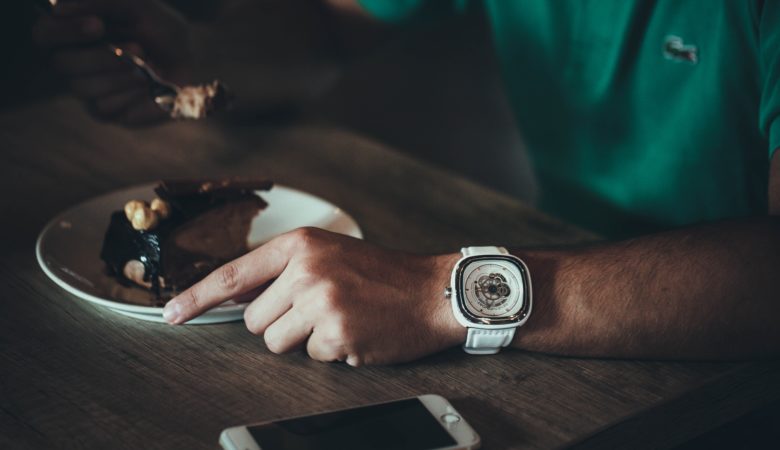Your Smartphone Might Be Sabotaging Your Diet

The weight loss industry is a $33 billion dollar monolith, and about 45 million Americans go on a diet each year. Diets take commitment, willpower—and apparently, less time on your smartphone.
That’s right, your smartphone might be sabotaging your diet. Even if you’ve unfollowed all those food-related Instagram accounts that tempt you into drowning your sorrows in cheese or chocolate, it’s still detrimental to your health.
On the other hand, your smartphone can be a tool to help your diet. Here’s how to ditch the bad habits and set yourself up for weight loss success.
How smartphones can hurt your diet
Did you know that if you use your smartphone for five or more hours per day, you have a 43 percent increased risk of obesity? It’s not that your smartphone is forcing you to shovel brie into your mouth (cheese needs no help being tempting)—it’s that you’re probably entrenched in a lot of unhealthy habits. Here are five major ways a smartphone can work against you.
- You’re overeating while you multitask. You’ve probably heard that people tend to overeat when they multitask, which is why health experts caution against eating lunch at your desk. However, if you’re eating and scrolling on your phone any time of day, you’ll get the exact same effect. You’ll miss satiety cues and are more likely to overindulge.
- Your phone is contributing to your anxiety. The world is on fire—at least, that’s the impression you’ll get if you’re constantly scrolling through news feeds, social media and other information sources. While it’s hard not to get upset at the state of the world sometimes, it’s also okay to take a break from the news. In fact, researchers have noted a correlation between excessive smartphone use and depression, anxiety and low mood. If you’re already prone to eating when you’re sad, this won’t help.
- You’re not getting good sleep. You probably know that electronic devices emit blue light, which is detrimental to falling (and staying) asleep. When you’re not rested, you’re less likely to eat well or have the energy to exercise. Put the smartphone away at least an hour before bedtime.
- You’re distracted during cardio. Love reading or watching videos while you exercise? It might be taking away from your cardio exercise. Studies have shown that people who use their smartphones for visual stimulation during cardio don’t put forth the same effort. That means you could be sabotaging your own workout. If you need a distraction, try fast music instead.
- You’re walking slower. Going for a walk? If you’re staring at your smartphone, chances are that you’re walking a lot slower than you should be. That doesn’t mean you have to stop playing Pokemon GO while you’re out and about, but if your primary focus is on weight loss, put your phone away.
How to make your smartphone work for you
This doesn’t mean you have to completely ditch the smartphone, however. There are plenty of ways you can make your smartphone work for you and your diet. For example, calorie and exercise-tracking apps like MyFitnessPal encourage you to be mindful (and honest) about what you’re putting in your mouth. Fitbit, smartwatches and other fitness devices can sync to your phone and help you keep track of the energy you’re expending versus how much you’re taking in via food and drink.
Social media can also be helpful. For example, some people find it very inspiring to track their progress and watch others for motivation. As long as you have a healthy balance between #fitspo content and other feeds, the occasional reminder can help keep you on track. Plus, with a supportive community, you’re more likely to celebrate your achievements and stay the course.
Finally, you can use your smartphone to find great workouts—which is great if you’re still not comfortable hitting an in-person gym again. Your phone can help guide you through warm-ups, exercises and cool-downs. Many apps and services are free or charge nominal amounts for a subscription, making it perfect for the busy and those on a budget.
The bottom line
Like any diet or exercise advice, the bottom line is that your smartphone can be helpful—as long as you set some healthy boundaries and limits for yourself. Take some time to adjust your habits, and you might just find yourself in better shape than ever before.

